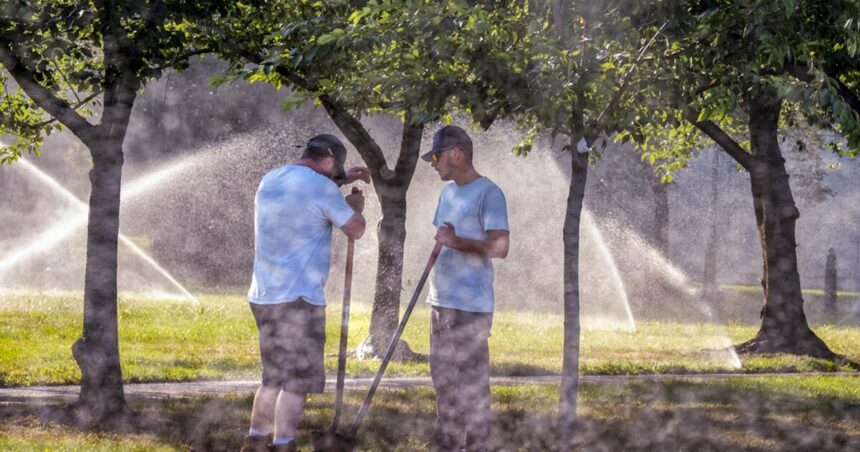A scorching heat wave on Wednesday spanned from the Midwest to New England, impacting millions of people during the Juneteenth holiday. This included northern Maine, where such early-year conditions are rare.
In Caribou, Maine, just 10 miles from the Canadian border, the heat index reached a record 103 degrees Fahrenheit. This exceeded temperatures in Miami, with Caribou at 94 degrees compared to Miami’s 89, according to the National Weather Service.
Residents noted that June temperatures in the 70s and 80s are typical, with lower humidity levels. Hannah Embelton, a 22-year-old server in Caribou, mentioned that the current heat was unusual for the region.
At Moose River Campground, owner Lisa Hall experienced the intense heat while working on a cabin faucet, noting that this level of heat is more common in mid-July or early August.
The National Weather Service warned of dangerous temperatures in the eastern Great Lakes and New England, with heat index readings expected to reach 100 to 105 degrees in many areas.
Officials advised people to limit outdoor activities and check on vulnerable individuals during the heat wave. Cooling centers and pools were closed for Juneteenth celebrations in various cities, affecting services for those seeking relief from the heat.
New York offered free admission to state parks and opened select pools and beaches early for swimming. However, public swimming pools in New York City remained closed until the following week.
As heat-related activities were scaled back, many people sought ways to stay cool amid the sweltering weather. The impact of climate change on prolonged heat waves was also noted, with studies showing an increase in extreme temperatures across the U.S.
Elsewhere, wildfires erupted in California and New Mexico, while tropical moisture brought the threat of heavy rain and flash flooding to the central Gulf Coast.





